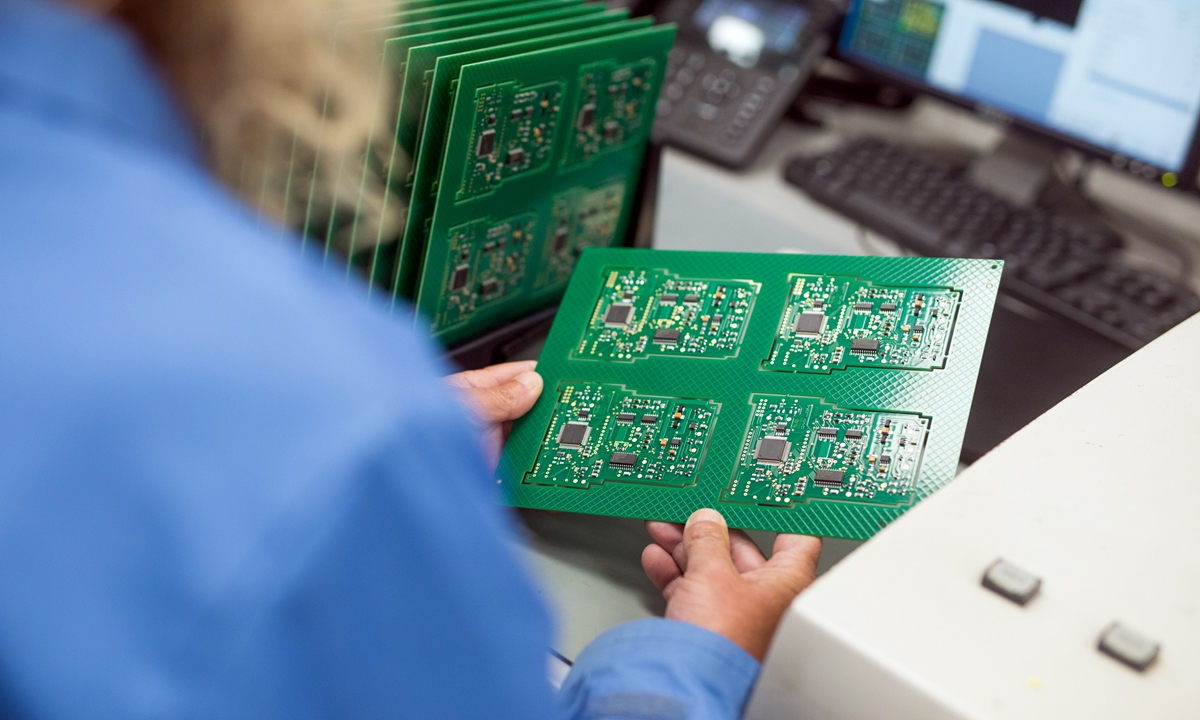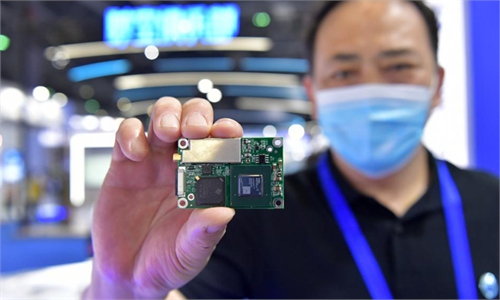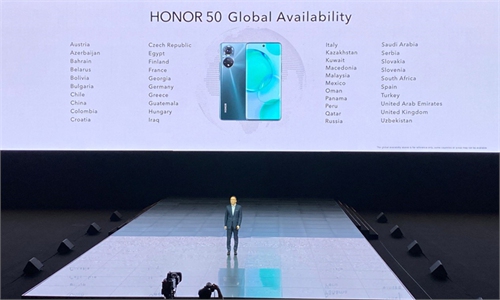
An employee checks a printed circuit board containing integrated circuit microchips at CSI Electronic Manufacturing Services Ltd. in Witham, the UK, on April 28, 2021. Photo: VCG
Against the backdrop of a global chip shortage that is stifling the automotive and electronics industries, governments around the world are actively joining the new innovation race for developing cutting-edge semiconductor technologies. Among these, the UK appears to be the latest participant.
UK Prime Minister Boris Johnson has set out plans to establish a new National Science and Technology Council and a new Office for Science and Technology Strategy, part of the effort to build the country into a "science superpower," according to a press release published on Monday by the prime minister's office. The government also plans to invest 14.9 billion pounds ($10.7 billion) in research and development in 2021-22.
As major economies such as the EU, China, Japan and South Korea have successively released plans to enhance spending in the semiconductor sector, observers believe chip-related technology will also become an indispensable part of the UK's investment in building its own technology ecosystem.
However, it should be noted that significant investment may be only one aspect of building a technological superpower. What the world really needs now is the science superpower that is able to re-establish international rules and eliminate hegemony in key scientific and technological areas.
At a time when governments are racing to develop their own semiconductor production to reduce dependence on the current global supply chain, how to cooperate to restore market order and crack down on hegemonism are key questions the UK should be reflecting upon.
Take the chip industry as an example. The US power play that recklessly cut Chinese technology companies off the supply chain has made countries extremely cautious about decisions that could aggravate technological monopoly of other countries and put their domestic companies at a disadvantage.
The UK government in April issued a public interest intervention notice on Nvidia's proposed $40 billion takeover of British chip designer Arm, followed by formal investigation and assessment into the deal by UK competition watchdog. Nvidia in June also applied to Chinese regulators to review the transaction.
So far, no regulator around the world has given any positive signal on the deal, an indication of the cautious attitude shared by governments when it comes to the development of their chip-related industries and risks of technological monopoly and hegemony.
To a certain extent, the timing of the proposed deal, amid the US pursuit of a so-called tech decoupling from China, is awkward for Nvidia. The importance of Arm's neutrality goes without saying. Arm controls the world's most widely-used CPU instruction set architecture, and chips based on Arm architecture are used in the world's most smartphones and smart devices. The prudence in avoiding technological hegemony has made the acquisition more difficult under the current circumstances.
Fundamentally speaking, how to avoid malicious competition and hegemony in crucial tech industries is something the world needs to think about. The UK especially needs to give it a think if it wants to become a technological superpower.


